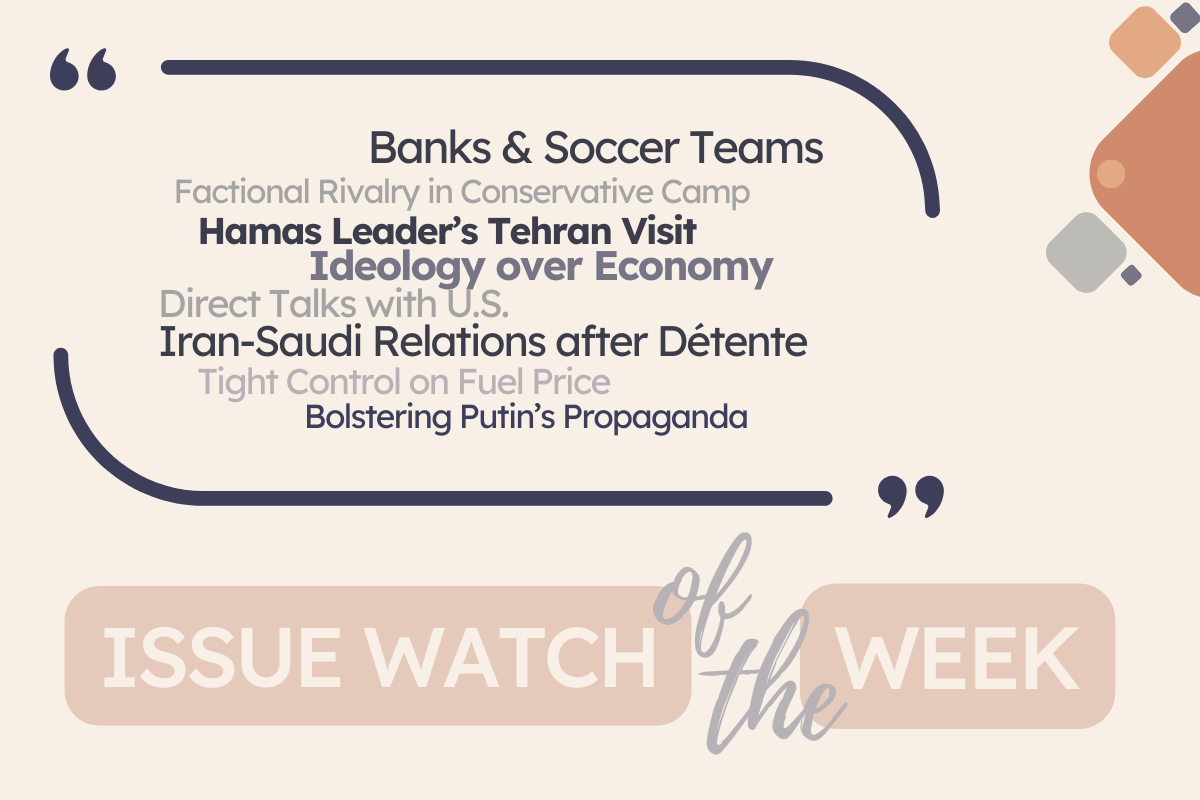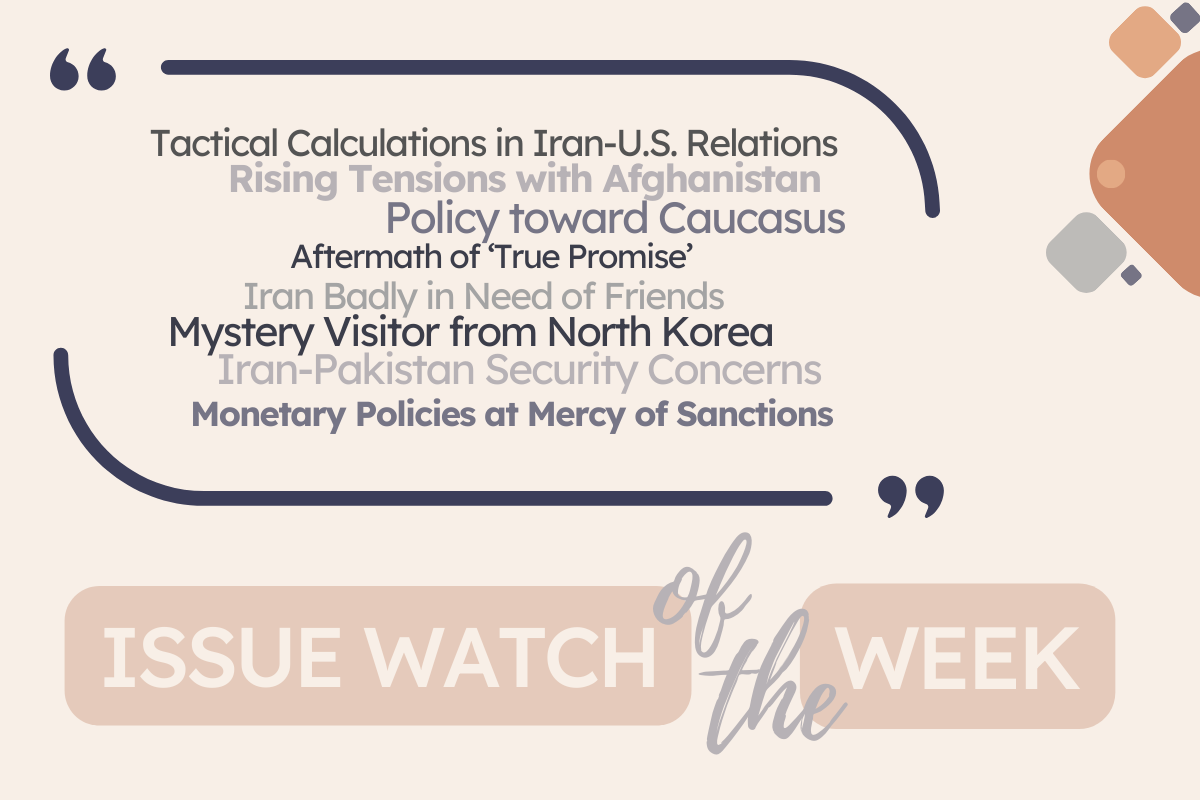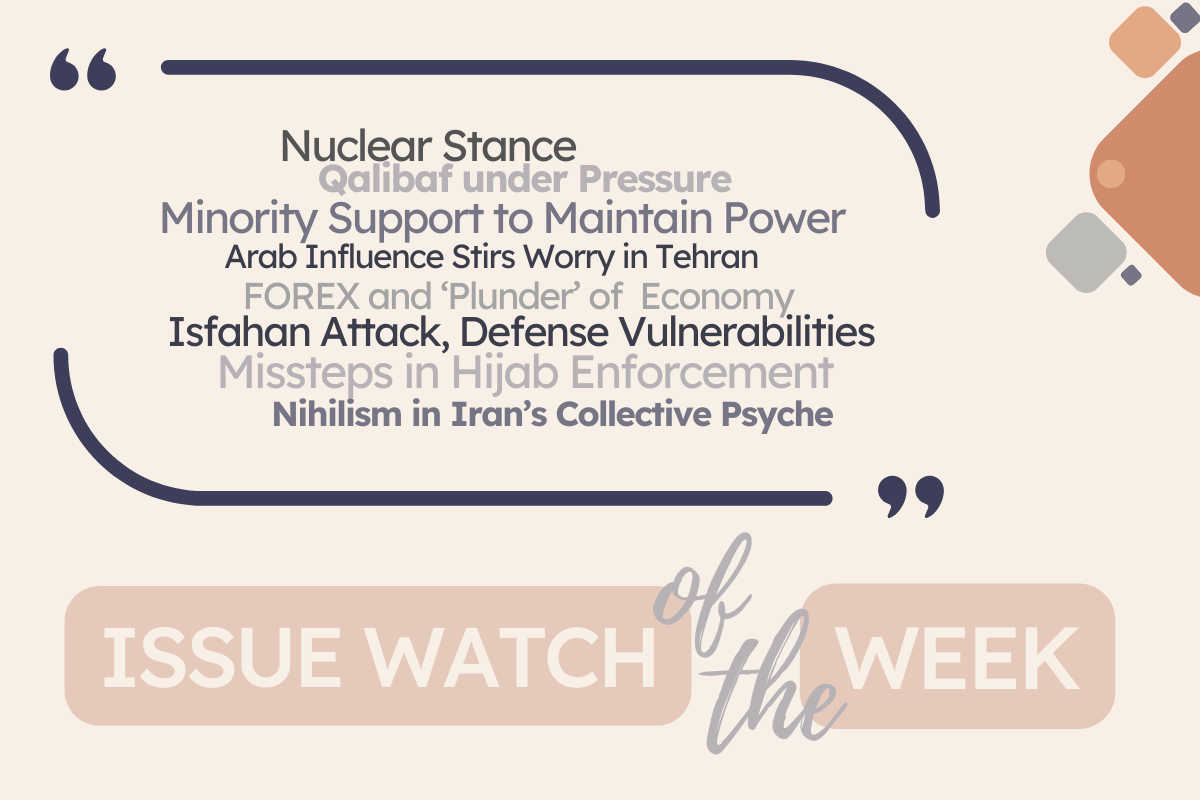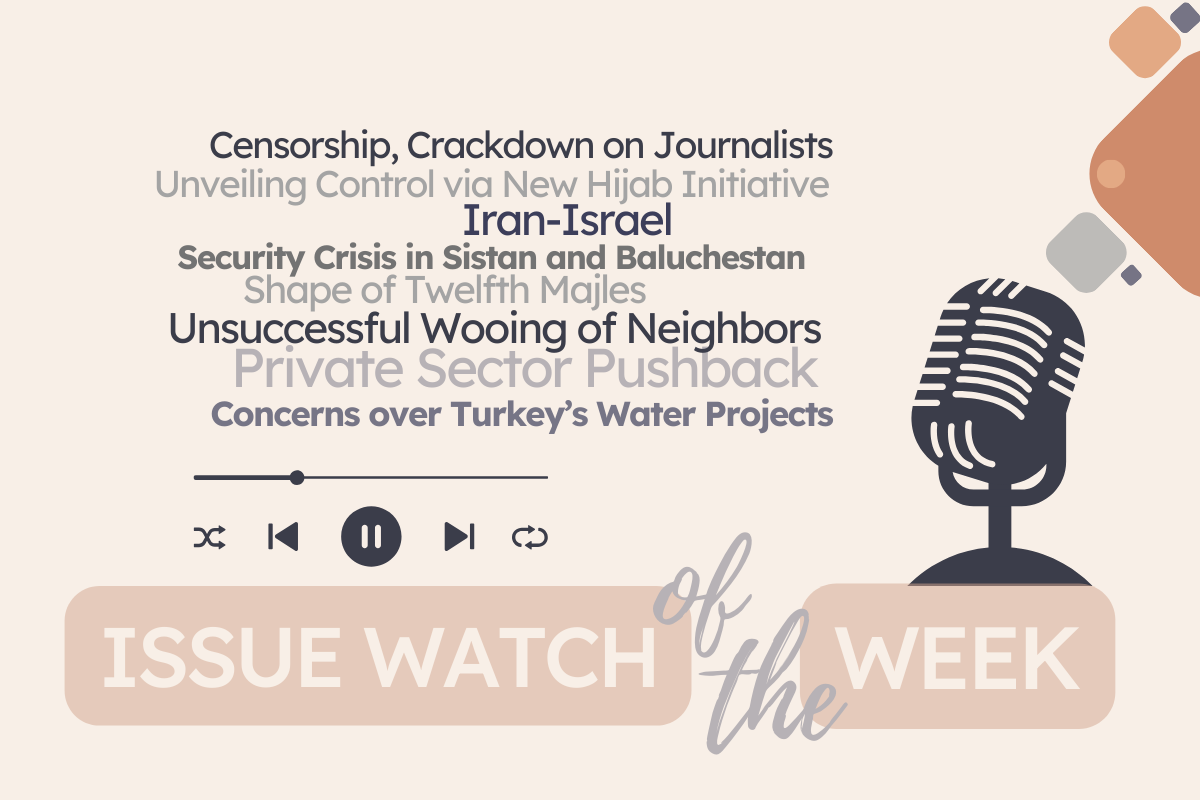Bank Activities: Controversial Counter to Production Goals:
Shortly after joint ventures with the ministry of petroleum in oil and gas projects, Iranian banks are in the spotlight again for their intention to acquire Tehran’s two soccer clubs, Esteqlal and Persepolis. The Ra’isi administration’s approval of the transfer has sparked controversy because of the clash with existing laws that bar such ownership. Banks have evolved into powerful entities, often defying the directives of the Central Bank of Iran and operating with scant oversight. The administration’s greater interest in collaborating with them has intensified scrutiny because of their competition with the private sector and obstruction of the production-driven goals central to Supreme Leader Ali Khamenei’s economic vision for the country.
Strategic Rivalries, Presidential Aspirations:
The factional rivalry within the conservative camp for key Majles positions has subsided during the holidays, but, even despite the supreme leader’s insistence on unity, observers remain skeptical about a complete resolution. Moderate and reformist-leaning MPs are noticeably resisting the idea of ultra-hardliners seizing the speakership. Former MP Heshmatollah Falahatpisheh hints at President Ra’isi’s preference to run unopposed in 2025, implying that if the embattled Mohammad-Baqer Qalibaf retains his speakership, he would be less likely to challenge the incumbent president. Amidst growing dissatisfaction with the administration, Ra’isi would thus find it advantageous to have a moderate, yet proven, adversary leading the Majles rather than ultra-hardliners, whose unpredictable actions could further drag down his presidency.
Hamas Leader’s Tehran Visit amid UN Ceasefire Resolution:
The arrival of senior Hamas leader Ismail Haniyeh in Tehran, just a day after a UN resolution called for a ceasefire and the immediate release of hostages, is particularly significant. His red-carpet reception and meeting with the supreme leader underscore Iran’s reaffirmation of its steadfast support for Hamas and its control of Gaza. For Khamenei, international public support for the people of Gaza holds paramount importance, prompting calls for enhanced media and propaganda efforts. In alignment with this, organizations responsible for the upcoming Quds Day are ramping up efforts for the event, emphasizing commemorative and ceremonial activities. This includes mobilizing collections of humanitarian aid for Gazans, coordinated by the Red Crescent, the Imam Khomeini Relief Foundation, and Basij bases.
Conspiratorial Accusations Bolstering Putin’s Propaganda:
Conspiracies abound in the Iranian media about the 23 March attack on the concert hall in Moscow, the common theme being that the U.S. did it! Some believe it was in retaliation for Russia’s UNSC veto of the temporary ceasefire in Gaza. Another pundit speculated that inability to deter Vladimir Putin in Ukraine has driven the West into going after ordinary citizens in Moscow. Some are repeating Russian allegations that Ukraine was behind the attack and that the U.S. is blaming it on ISIS as a deflection. Ali-Akbar Velayati, the Russophile confidant of Supreme Leader Ali Khamenei, released a statement on behalf of the World Assembly of Islamic Awakening blaming the U.S. for supporting ISIS and using it in Syria to advance political objectives.
Ideology over Economy:
The livelihood problems of Iranians can be traced to a non-economic factor like an ideological approach that pooh-poohs economic development. So says senior economist Morteza Afqah, carefully avoiding direct reference to Supreme Leader Ali Khamenei, who declared in 2012 that Iran had nothing to fear from U.S. sanctions after 32 years of “vaccination.” Attributing a similar mindset to Mahmud Ahmadinejad, Afqah explains how such thinking has held Iran back economically for decades. The persistence of this thinking in the Ra’isi administration and the more radical Twelfth Majles can only worsen the situation and leave Iran with few options after so much lost time. A reformist former MP bemoans the caliber of administration officials, such as Minister of Economy Ehsan Khanduzi, who had “never even led a class” before assuming stewardship of the country’s economy.
Iran’s New Year Resolution: Direct Talks with U.S.:
Whether one resorts to terms like “strategic flexibility” or a “more pragmatic” approach, descriptions of Iran’s troubled relations with the U.S. feature prominently in assessments of the country’s foreign policy in the year just ended and the challenges in the year ahead. Floating the possibility of direct talks, the hardline Javan saw an Iranian triumph in a “more balanced” U.S. approach during the last 12 months. But according to analyst Reza Nasri, Iran needs to counterbalance reliance on Russia and China with the West to give itself maneuverability on the international stage. Former Rouhani official Abbas Akhundi argues that Iran’s security is tied to cooperation with other regional powers, itself tied to better relations with the U.S. Iran, he says, must improve its international perception as a rogue state and be seen as a cooperating member of the international community, which would entail acceptance of the JCPoA and FATF.
Thin Public Patience for Economic Claims:
A multitude of observers have vehemently contested President Ra’isi’s claim of 6-percent economic growth for the past year, deeming it either entirely false or, at the very least, grossly misleading. They believe this alleged growth was driven primarily by oil sales, while non-oil sectors such as agriculture and industry saw a decline in production. The overwhelming wave of critical responses prompted the president’s X account administrators to argue that the administration had nullified forecasts of triple-digit inflation, thereby suggesting that the current 40-percent inflation rate represents a significant accomplishment. And yet even conservative commentators acknowledge that the populace has yet to feel the impact of these “achievements.”
India’s Role in South Caucasus: Implications for Iran:
Observers indicate that India’s increased engagement in the South Caucasus, fostering closer relations with Armenia and counterbalancing the trilateral collaboration between Ankara, Baku, and Islamabad, could hold several benefits for Iran. The military-technical cooperation evolving between Yerevan and New Delhi is set to enhance Armenia’s defense capabilities, reducing Yerevan’s reliance on the European Union or Iran for support. This shift is likely to ease some of the existing tensions between Iran and the Republic of Azerbaijan. India’s reinforced presence in the region is anticipated to rebalance regional dynamics against Israel and Pakistan, both of which maintain contentious relations with Iran concerning Azerbaijan. Moreover, the proposed India-Iran-Armenia trade corridor, encompassing maritime and land routes as part of the International North-South Transport Corridor, promises to elevate Iran’s status as a critical transit point at both regional and global scales.
Fragile Diplomacy: Iran-Saudi Relations after Détente:
Despite facing challenges, Tehran and Riyadh have successfully preserved their newly rekindled relationship, adopting a stance aimed at de-escalation. Conservative observers view the revival of these ties as a precursor to substantial geopolitical shifts in the Persian Gulf and among Arab nations, against the perceived backdrop of diminishing American dominance in the region. Despite geopolitical optimism and a $14 million steel export deal from Iran to Saudi Arabia, U.S. sanctions still hinder the prospects for considerable bilateral trade expansion—not to mention that the Iranian market appears too modest to align with Saudi Arabia’s ambitious plans. Iranian analysts are worried that Iran has yet to temper its unrealistic expectations of the relationship and shift towards a lasting, pragmatic approach that could yield tangible benefits.
Tight Control on Fuel Price News:
Worry among Iranian officials over public reaction to any increase in fuel prices is moving them to swiftly quash what they deem “rumors” about an impending three-tier pricing structure for gasoline. Currently, it is a two-tier system: a quota at a government-subsidized rate, and anything beyond at free-market prices. Few have forgotten the sudden hike in fuel prices that triggered massive protests in November 2019, which the state put down with brutal force. The National Iranian Oil Production and Distribution Company, operating under the ministry of petroleum, is attributing the “rumors” to expatriate media outlets. However, there is no denying the government’s need for revenue, as indicated by the promise of increased fines for traffic offenses. In addition to fines for lax hijab, this can replenish the government’s empty coffers.







